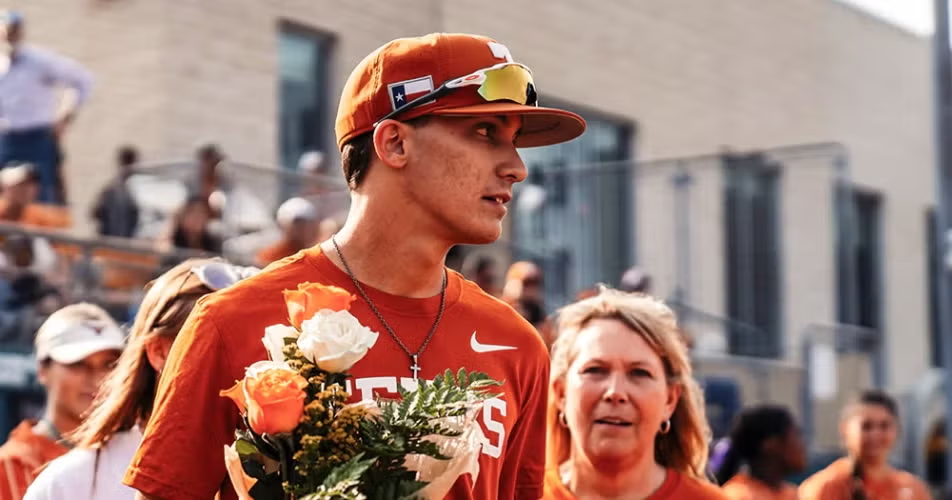Sport Management – On-Campus
Department of Kinesiology and Health Education
Designed For
Students who want to deepen their expertise, expand their leadership capacity and strengthen their strategic understanding of how the sports industry operates at every level. It is especially beneficial for professionals seeking to apply real‑world experience to high‑impact roles that shape the future of sport.
Career Objective
This program prepares graduates to pursue or accelerate careers across the full spectrum of the sports industry. Whether your goal is to work in professional sports, collegiate athletics, international sport organizations, or grassroots and community sports, you will gain the skills and industry perspective needed to lead, innovate and make data‑informed decisions. Graduates emerge ready to contribute meaningfully to sport organizations of all sizes—equipped with the strategic, analytical and operational expertise that modern sports careers demand.
At a Glance
Program Starts: Fall
Application Opens:
September 1
Deadline to Apply:
Fall Priority: December 1
Fall Final: May 1
Length of Program:
22 months, 36 credit hours
Program Location: In Person
GRE Required? No
Advance Your Career in Sport
Our sport management master’s program prepares you to work in nearly any sector of the sports industry. By focusing on the business and management of sports organizations, you will learn the skills necessary to succeed in this fast-paced, dynamic world.
Our department has a formal partnership with Texas Athletics, essentially guaranteeing students a way to gain experience. We also work closely with all the sports organizations in the area and provide numerous opportunities for students to earn valuable practical experience as they learn and grow.
We welcome and value students from all academic and professional backgrounds who are fascinated by how and why sports play such a significant role in society.

Graduate Program Administrator
Phillip Salazar
Program Overview
Application Requirements
You must follow the application steps outlined on the How to Apply page and submit your undergraduate and other academic transcripts, a statement of purpose, three letters of reference and a resume.
International students will need to submit TOEFL scores or other evidence of language proficiency. Check The Graduate School for specific requirements.
No admission decision will be made until the application is complete.
Program Requirements
Coursework
You will take five of your six core courses and one elective during your first year. You will take your remaining core course, fulfill electives and complete a semester-long internship during your second year.
Be sure to familiarize yourself with all the internship requirements during your first year so you can find an internship that aligns with your career goals.
Core Courses (18 Credit Hours)
- KIN 395 Managing People & Organizations (Fall Year One)
- KIN 395 Facility and Event Management (Fall Year One)
- KIN 395 Legal Issues in Sport (Fall Year One)
- KIN 395 Sport Marketing (Spring Year One)
- KIN 395 Ethics in Sport (Spring Year One)
- KIN 395 Strategic Management for Sport (Fall Year Two)
Electives (3 Credit Hours)
Electives may be taken from sport management or physical culture and sport studies courses, other KIN/HED classes and courses outside the department. Three hours of upper-division, undergraduate coursework is permitted. Options include:
- KIN395 Sport Policy
- KIN 395 Sport and International Relations
- KIN 395 Sport Analytics
- KIN Sport Economics
- KIN History of the Sport Industry in America
- an elective chosen in collaboration with your faculty advisor
Completion of KIN 697P: Internship in Sport Management (Following Year One)
Develop in consultation with your advisor. Review the approved sites list.
If you are interested in conducting research on sport management and potentially pursuing a Ph.D., we encourage you to talk to your advisor about moving into the M.S. program after you start the M.Ed. In addition to the core coursework, M.S. students must complete an original research project and write either a thesis or a report under the supervision of a faculty member.
Funding Opportunities
The department has a number of graduate employee and recruiting scholarships and fellowships available to select students. Email our graduate coordinator for more information.
Faculty

Teaches courses on sport history and strength and conditioning. Research focuses on physical culture history.

Examines the management of systems for athlete development, including how different sport settings influence performance and participation over the lifespan. Focuses on re-imagining the youth sport experience, with a specific interest in the developm...

Focuses on the history of sport culture, particularly Olympic weightlifting, and its impact on society.

Specializes in behavior, sports performance, and decision making in golf; teaches golf and courses need to be certified in physical education.

Examines the intersection of physical culture and international political history.
Accepting new students

Studies managerial economics in sport relating to the market power of pro sports leagues under three primary branches: industrial organization, labor markets, and public policy and economic development.


Studies the historical, philosophical, sociocultural, and political dimensions of sport and physical culture.

Focuses on the development of sport policies and the ways in which professional sport teams can be leveraged to generate economic, social, and tourism benefits for host communities.

The History and Philosophy of the Body, Sport, and Physical Culture from Ancient Greece to the Present

Specializes in the history of strength and conditioning, doping, women and sport, and history of physical culture.
Graduate Placements
A few recent examples of organizations where our graduates have been hired or interned include:
- Alamo Valero Bowl
- Yahoo! Sports
- Red Bull
- SEC
- Olympics
- Austin Parks & Recreation
- PGA of America
- Dallas Cowboys
- Boise State University
- University of Missouri
- Boston Celtics
- Spurs Sports and Entertainment
- Hyperice
- Snapback Sports
- William Morris Endeavor (WME) Sports
- Creative Artists Agency
- Octagon Sports and Entertainment
- UFC – Ultimate Fighting Championship
- Minnesota Vikings
- Denver Broncos
- Utah Jazz
- Cleveland Browns
- Dallas Mavericks
- Houston Rockets
- Detroit Tigers
- Houston Astros
- San Francisco 49ers
- San Diego Padres
- CBS Sports
- MLB – Major League Baseball China
- 2026 FIFA World Cup
- Austin Football Club
- University of Texas
- Texas Rangers
- TopGolf
- JG Adds – to consider?
- Austin Gamblers
- Round Rock Express
- Yeti
- New Orleans Pelicans
- Merging Vets & Players
- Sugar Land Space Cowboys
- Goodyear Cotton Bowl Classic
- UIL
Additional Information
Stay in Touch
With the growth of the Sport Management program at both the graduate and undergraduate levels, keeping up with our alumni is very important. Up-to-date information on program alumni facilitates the maintenance of an alumni directory, allows alumni to locate former classmates, and reinforces the UT Sport Management alumni network.
Let us know what your academic interests are within the College of Education and we’ll be in touch.

Our Alumni
“What’s unique about UT Austin is that when you are a student here, you get to work with one of the greatest athletic departments in the country, and that is just a perk of being here, which is very rare. Working in the athletic department like I did set me up for what I am doing now with the Minnesota Twins and will continue to ultimately set me up for my future.”
— Will Johniken M.Ed. ’25



